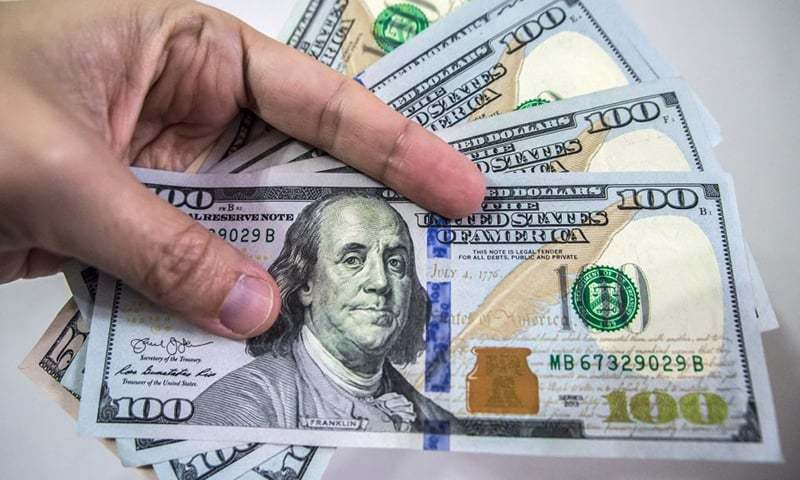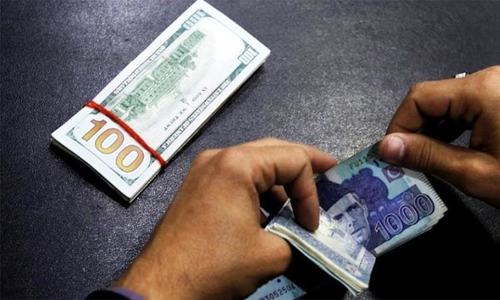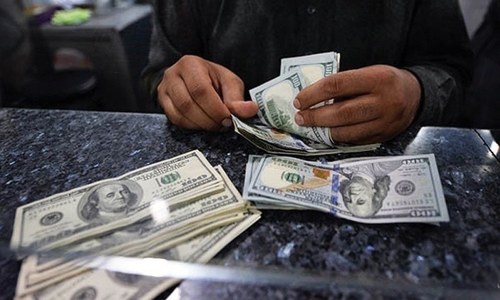KARACHI: The US dollar on Thursday hit a 10-month high, crossing the Rs164 mark.
The dollar has been appreciating against the rupee since May because of a number of reasons, including the higher current account deficit and import bills.
Each month of the second half of the financial year FY21 witnessed a current account deficit but it remained in surplus due to the achievement of the first half till the end of 11 months of the same year — only the June deficit pushed the entire year’s (FY21) surplus into a deficit of 0.6 per cent of GDP.
The dollar was at Rs164.1 on October 6 last year. Then it had been depreciating after achieving its highest level of Rs168 in August last year. On Thursday, the dollar closed at Rs164.1.
The greenback has appreciated 7.15pc since the middle of May
Since the middle of May 2021, the dollar appreciated by 7.15pc against the local currency which increased the cost of imported products and created uncertainty about the exchange rate stability.
Governor of the State Bank of Pakistan (SBP) Dr Reza Baqir said on Wednesday that the appreciation of the US dollar is natural since the current account deficit is expected to increase in FY22 in the range of 2 to 3pc of GDP. He said if the exchange rate did not move despite increasing the current account deficit, it meant the exchange rate was being managed which was artificial and dangerous for the economy.
Since the beginning of the new financial year the exchange rate looked shaky as the local currency lost 3.94pc against the US dollar. The market reacted over the policy-makers’ announcement about 2-3pc current account deficit, while the importers rushed for higher amount.
However, the SBP said the higher economic growth required higher imports.
Currency experts in the banking sector have no idea what is the real exchange rate required by the government or the central bank or where is the end point for depreciation of the local currency. The exporters would get benefit against their export proceeds but the importers would face a tough time as the cost has been increasing and ultimately it will hurt consumption, which is the main wheel pulling the economy.
The government was lucky to receive record $29.4bn remittances in FY21 and it again received $2.7bn in July FY22 indicating that the new financial year would also get help larger than the entire exports of the country.
Although the SBP’s foreign exchange reserves are in a better shape, it relies heavily on borrowing to keep it at around $18bn.
Published in Dawn, August 13th, 2021














































